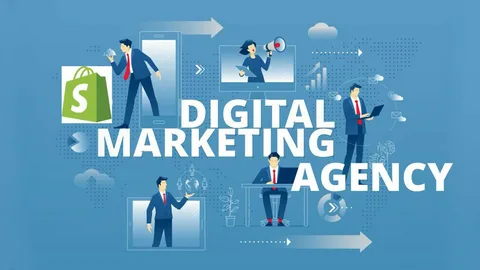Business
Secrets Behind Successful Ghostwritten Books

Introduction
Ghostwritten books have long captivated readers, but many are unaware of the effort and strategy behind their creation. While the author’s name appears on the cover, the craft of transforming ideas into compelling narratives often lies in the hands of expert ghostwriters. Understanding the secrets behind these successful ghostwritten books can provide valuable insights for anyone looking to create a book that resonates with readers and achieves commercial success.
The Role of a Ghostwriter
A ghostwriter’s main role is to translate someone else’s vision into a polished, compelling manuscript. They act as a creative partner, turning rough concepts, interviews, or scattered notes into a cohesive book. This requires not only writing skills but also the ability to mimic the client’s tone and style so the final work feels authentic. The most successful ghostwriters are excellent listeners, keen observers, and adaptable storytellers. Their skill lies in making the book sound like it was entirely written by the credited author, while ensuring it meets professional publishing standards.
Building Trust Between Author and Ghostwriter
Trust is the foundation of a strong ghostwriting partnership. Clients often share personal stories, sensitive details, or industry insights that require confidentiality. Before the writing begins, both parties typically sign agreements to protect ideas and establish clear expectations. A transparent working relationship helps the ghostwriter capture the author’s voice more accurately. Frequent communication—through interviews, drafts, and feedback—ensures the final book matches the author’s vision and resonates with readers. Without trust, even the best writing skills cannot produce a truly successful ghostwritten book.
Research: The Hidden Backbone
Great ghostwritten books are grounded in thorough research. Even memoirs or personal stories often require fact-checking, background information, or cultural context to enhance credibility. Ghostwriters dig deep into relevant materials—articles, archives, interviews, and historical references—to ensure accuracy and depth. In non-fiction projects, research can involve studying industry trends, gathering statistics, and consulting experts to back up claims. This behind-the-scenes work transforms a basic manuscript into a well-informed, trustworthy piece of literature.
Capturing the Author’s Voice
One of the most challenging and important aspects of ghostwriting is capturing the author’s unique voice. Readers should feel as though they are hearing directly from the person on the cover, not from an invisible writer. Achieving this requires careful attention to speech patterns, word choice, and personality traits. Ghostwriters often conduct multiple interviews, study past writings, and analyze the author’s way of expressing ideas. This process ensures that the final manuscript reflects the author’s identity while still benefiting from the ghostwriter’s skill.
Structuring for Maximum Impact
A well-structured book keeps readers engaged from start to finish. Ghostwriters carefully plan the flow of chapters, ensuring a balance between information and entertainment. They decide where to place key revelations, how to build tension, and when to provide moments of reflection. In business or self-help books, structure often includes actionable steps, summaries, and examples to reinforce learning. For fiction, it involves plotting scenes, developing characters, and pacing the storyline to maintain interest. A strong structure is one of the biggest secrets to a book’s success.
Secrets Behind Successful Ghostwritten Books
1. Collaboration is Key
One of the main secrets of a successful ghostwritten book is the collaboration between the author and the ghostwriter. A skilled ghostwriter doesn’t just write—they listen, ask questions, and immerse themselves in the author’s voice, tone, and vision. This collaborative approach ensures that the book truly reflects the author’s ideas while maintaining readability and engagement. Expert ghostwriters are adept at striking the perfect balance between preserving the author’s voice and enhancing the narrative flow.
For example, in autobiographies, ghostwriters often spend weeks with the author to capture personal anecdotes, emotions, and experiences accurately. This collaborative effort ensures that the book authentically reflects the author’s perspective while maintaining a compelling narrative flow. The strongest ghostwritten books are those where readers cannot distinguish between the author’s original voice and the ghostwriter’s craft.
2. Thorough Research Builds Credibility
Behind every successful ghostwritten book is meticulous research. Whether the book is nonfiction, memoir, or fiction, research is essential to lend authenticity and depth. Expert ghostwriters know how to gather relevant information, verify facts, and present data compellingly without overwhelming the reader. In nonfiction or business books, for example, accurate statistics and case studies can transform an ordinary manuscript into a credible, authoritative work.
In nonfiction books, well-researched statistics, case studies, and examples can significantly boost a book’s authority. For instance, a business strategy book that references industry data and real-world examples can inspire trust in readers and increase its market appeal. Even fiction requires research to ensure realistic settings, character development, and plot consistency, giving readers an immersive experience.
3. Understanding the Target Audience
A book’s success often hinges on how well it connects with its readers. Expert ghostwriters begin by understanding the target audience—what they value, the problems they face, and the type of content that resonates with them. This knowledge shapes every aspect of the book, from the style and tone to the structure and examples used. When readers feel understood, they are more likely to engage, share, and recommend the book, boosting its overall success.
For instance, a self-help book aimed at young professionals will use a different tone and structure than one written for seasoned entrepreneurs. By tailoring the content to the audience, ghostwriters ensure the book resonates, engages, and encourages readers to take action, whether it’s sharing the book, applying its insights, or leaving positive reviews.
4. Crafting a Compelling Narrative
Even in nonfiction, storytelling is crucial. Readers are drawn to books that tell a story, evoke emotion, or offer solutions in a relatable way. Expert ghostwriters excel at structuring content to maintain interest, with clear introductions, logical progression, and memorable conclusions. In memoirs or autobiographies, they bring personal experiences to life, turning facts into narratives that inspire and captivate readers.
Memoirs and autobiographies, for example, require more than just facts—they demand storytelling that brings personal experiences to life. Ghostwriters transform isolated events into a flowing narrative that captivates readers and highlights key themes. In fiction, they ensure characters, dialogue, and plot arcs maintain consistency and tension, keeping readers hooked from the first page to the last.
5. Revision and Refinement
Writing a book is rarely perfect in the first draft. Successful ghostwritten books go through multiple rounds of editing and refinement. Expert ghostwriters work closely with editors and the author to polish language, correct inconsistencies, and enhance clarity. This iterative process ensures that the final product is professional, coherent, and ready for publication.
This iterative process includes structural edits, stylistic adjustments, and fact-checking to produce a cohesive, professional, and publication-ready manuscript. Authors benefit from this meticulous approach, as it ensures their ideas are presented in the most compelling and persuasive way possible.
6. Balancing Creativity and Marketability
A secret that sets top ghostwritten books apart is the balance between creative expression and market appeal. Expert ghostwriters are not only writers—they are strategists who understand trends, genres, and market demands. They know how to make a book engaging and original while ensuring it appeals to publishers, bookstores, and the intended readership.
They know how to make a book unique, engaging, and authentic while ensuring it appeals to publishers, bookstores, and online marketplaces. For example, in business books, they may advise on chapter sequencing or content emphasis to maximize relevance to professionals and industry leaders. In fiction, they consider pacing, tension, and character arcs to enhance reader satisfaction while aligning with market expectations.
7. Maintaining Confidentiality and Professionalism
Finally, the confidentiality of the ghostwriter’s role is a critical factor in a successful collaboration. Readers often associate the work with the named author, but behind the scenes, expert ghostwriters work discreetly, ensuring professional integrity. This allows authors to focus on their vision and messaging while trusting that the writing process is handled with skill and discretion.
This confidentiality allows authors to focus on their creative vision without worrying about external recognition for the writing process. Professional ghostwriters manage deadlines, revisions, and the overall project workflow, ensuring the final book is delivered on time and meets high standards.
Conclusion
The success of ghostwritten books is no accident. It is the result of careful collaboration, research, audience understanding, narrative craftsmanship, and professional refinement. Expert ghostwriters bring their talent, experience, and strategic insight to every project, transforming ideas into polished, compelling, and market-ready books. Whether you aim to write a memoir, business book, or fiction novel, partnering with an expert ghostwriter can unlock the potential to create a book that resonates deeply with readers and achieves lasting impact.
For example, they might suggest including actionable tips, case studies, or interactive elements in a business book to increase its appeal on platforms like Amazon or in corporate libraries. This strategic approach elevates the book from a personal project to a market-ready product with strong sales potential.
Business
Elevate Your Brand with a Top Digital Marketing Agency in Guntur

In today’s digital world, growth depends on visibility. Customers search online before they buy. They compare options. They trust brands they see often. This is where digital marketing becomes a powerful tool for business success.
Businesses that invest in the right digital strategy grow faster, attract quality leads, and build long-term credibility. This is why choosing the right Digital Marketing Agency in Guntur matters.
Why Digital Marketing Is No Longer Optional
Traditional marketing alone is no longer enough in today’s digital-first world. Consumer behavior has changed. People now spend most of their time on Google, social media platforms, and websites when searching for products or services. They rely on online reviews, search results, and digital content before making purchasing decisions. Businesses that depend only on offline marketing risk losing visibility and relevance in this highly competitive environment.
By maintaining a strong online presence, digital marketing increases brand visibility and strengthens credibility. Consistent messaging across search engines, websites, and social media platforms builds familiarity and trust with potential customers. Over time, this trust plays a major role in influencing buying decisions.
Another key advantage of digital marketing is its ability to generate quality leads consistently. Strategies such as search engine optimization, content marketing, and paid advertising attract users with genuine intent. At the same time, businesses can track performance through analytics, gaining clear insights into what works and what needs improvement.
With structured planning and proper execution, digital marketing transforms online searches into meaningful customer interactions. It helps businesses build relationships, improve engagement, and achieve real, measurable growth in an increasingly digital marketplace.

The Growing Demand for Digital Marketing Services
This growing expectation has increased the demand for professional digital marketing services that focus on clear goals and measurable outcomes rather than random promotions. A strong digital presence ensures that your brand remains visible when customers are actively searching for solutions. It also helps businesses stay ahead of competitors by adapting quickly to changing market trends and consumer behavior.
By investing in effective digital marketing strategies, businesses can build authority, improve customer experience, and achieve sustainable growth in an increasingly competitive digital landscape.
What Makes a Digital Marketing Strategy Effective
An effective digital marketing strategy is not about doing everything at once. It’s about performing the correct actions in the proper sequence.
Key elements include:
- Search Engine Optimization (SEO) for long-term visibility
- Content marketing to educate and attract users
- Social media marketing to build relationships
- Paid advertising to get faster results
When these strategies work together, they create steady growth and strong brand recognition.
Choosing the Right Digital Marketing Agency
Not all agencies deliver the same value. A reliable agency focuses on understanding business goals, target audiences, and market competition.
A trusted Ecommerce Listing Services in Guntur like DT 7 Agency follows a structured and data-driven approach. Instead of generic plans, they create customized strategies based on business needs.
DT 7 Agency helps brands stand out in crowded digital spaces through clear planning, consistent execution, and measurable outcomes.
Why Businesses Trust DT 7 Agency
DT 7 Agency is known for delivering result-oriented digital marketing services in Guntur. Their approach is simple, transparent, and growth-focused.
What sets DT 7 Agency apart:
- Clear digital strategies
- Focus on business goals
- SEO-driven content planning
- Performance tracking and optimization
- Honest communication
Their expertise in digital marketing in Guntur helps businesses improve visibility, attract the right audience, and convert leads into customers.
Benefits of Working With a Professional Digital Team
Partnering with a professional agency saves time and reduces costly mistakes.
Benefits include:
- Expert planning and execution
- Consistent online presence
- Better ROI on marketing spend
- Scalable growth strategies
With professional support, businesses can focus on operations while digital experts handle online growth.
Final Thoughts
Digital marketing is an investment, not an expense. When planned and executed correctly, it creates long-term value for businesses rather than short-term visibility. Unlike traditional marketing, digital marketing focuses on measurable outcomes such as traffic growth, lead generation, and conversions. Over time, these efforts build brand authority, customer trust, and consistent revenue streams, making it a sustainable growth tool for businesses of all sizes.
Choosing the right partner plays a crucial role in achieving these results. If you are looking for reliable and effective digital marketing services in Guntur, working with a trusted agency like DT 7 Agency can make a real difference. With a structured, data-driven approach and a focus on business goals, DT 7 Agency helps brands strengthen their online presence, reach the right audience, and achieve measurable growth. Their expertise ensures that every marketing effort contributes to long-term success rather than temporary gains.
Business
OVO x NFL Collaboration: Luxury Streetwear Meets Sports Culture

The Official OVO x NFL Collaboration represents a groundbreaking fusion of luxury streetwear and professional sports culture, bringing together October’s Very Own (OVO) and the National Football League in a collection defined by authenticity, craftsmanship, and modern style. This exclusive collaboration is designed for fans who appreciate elevated fashion while staying connected to the legacy and energy of the NFL.
Each piece in the OVO x NFL collection reflects OVO Clothing signature minimalist aesthetic combined with official NFL branding. Clean silhouettes, premium materials, and refined detailing define the collection, making it versatile enough for everyday wear while still carrying strong cultural significance. Whether styled for game day, casual outings, or urban streetwear looks, the collaboration delivers a balance of comfort and sophistication.
Constructed using high-quality fabric blends, OVO x NFL apparel prioritizes durability and long-lasting wear. Soft interiors enhance comfort, while structured exteriors maintain a polished appearance. Thoughtful design elements such as reinforced stitching, ribbed trims, and functional closures ensure that every garment performs as well as it looks. Subtle OVO owl branding paired with official NFL insignia highlights exclusivity without overwhelming the design.
This collaboration stands as a celebration of modern sports culture, bridging the gap between athletic heritage and contemporary fashion. Limited availability further enhances its appeal, making each item a statement piece for collectors, fans, and streetwear enthusiasts alike. The Official OVO x NFL Collaboration is not just apparel—it is a representation of lifestyle, identity, and premium craftsmanship.
OVO x NFL Green Full-Zip Waffle-Lined Hoodie
The OVO x NFL Green Full-Zip Waffle-Lined Hoodie blends premium streetwear design with authentic NFL influence, offering a versatile essential built for comfort, durability, and modern style. Part of the exclusive collaboration between October’s Very Own (OVO) and the NFL, this hoodie delivers a refined look with a bold green colorway that adds depth and character to any casual wardrobe.

Official NFL details
Subtle OVO owl branding combined with official NFL details creates a clean, premium aesthetic that reflects authenticity without being overly loud. Crafted with a laid-back yet organized shape, this hoodie provides comfort throughout the day, whether it’s game day, while traveling, or incorporated into a stylish streetwear look.
The OVO x NFL Green Full-Zip Waffle-Lined Hoodie is a timeless piece that merges sports culture with luxury craftsmanship, making it a standout addition to any modern collection.
The OVO x NFL Blue Full-Zip Waffle-Lined Hoodie combines premium streetwear craftsmanship with authentic NFL heritage, delivering a refined essential designed for everyday comfort and modern style. Created through the exclusive collaboration between October’s Very Own (OVO) and the NFL, this hoodie stands out with its rich blue colorway that adds a bold yet versatile touch to any wardrobe.
High-quality cotton-blend exterior
Made from a high-quality cotton-blend exterior, the hoodie is lined with a soft waffle-knit interior that enhances warmth while remaining breathable. The full-zip design allows for easy layering, making it ideal for transitional weather and year-round wear. An adjustable drawstring hood provides added coverage, while ribbed cuffs and hem ensure a secure and comfortable fit throughout the day.
Subtle OVO owl branding paired with official NFL detailing delivers a clean, elevated look without overpowering the design. The relaxed silhouette offers freedom of movement while maintaining a structured appearance suitable for casual outings, game days, or off-duty streetwear styling.
OVO x NFL Black Full-Zip Waffle-Lined Hoodie
The OVO x NFL Black Full-Zip Waffle-Lined Hoodie delivers a refined balance of luxury streetwear and athletic heritage. Designed through the exclusive collaboration between October’s Very Own (OVO) and the NFL, this hoodie is crafted for those who value premium comfort, functional design, and elevated everyday style. Its sleek black exterior offers a timeless look, making it an ideal layering piece for both casual wear and game-day outfits.
Constructed with a durable cotton-blend outer shell, the hoodie is enhanced with a soft waffle-lined interior that provides superior warmth without added bulk. The full-zip front allows for easy wear and versatile styling, while the adjustable hood adds practical protection against cooler conditions. Subtle OVO branding paired with NFL detailing reflects authenticity and exclusivity, ensuring standout appeal without overpowering the design.
This hoodie is tailored for a , relaxed fit, delivering all-day comfort while maintaining a clean silhouette. Whether worn on its own or layered over essentials, it transitions effortlessly between seasons and settings.
Specifications
- Official OVO x NFL licensed collaboration
- Premium cotton or cotton-polyester blend fabrics
- Soft interior lining for enhanced comfort
- Durable construction with reinforced stitching
- Relaxed yet structured fit
Business
Norse Atlantic Airways Flash Sales: Tips for Budget Travelers

Norse Atlantic Airways provides an opportunity for budget-conscious travelers to cross the Atlantic in comfort. With competitive pricing and a focus on customer satisfaction, the airline is gaining attention among savvy fliers. When a flash sale happens, rates drop to levels that seem almost impossible for such a long trip. However, travelers must be aware of the highly strict rules that accompany these deals.
These promotions often come with specific conditions and limited availability, making it crucial to act fast. While jumping on a fantastic deal can save you money, it can also lead to challenges if you’re not informed. For any questions, you can contact the Norse Atlantic Airways customer support phone number in San Francisco for assistance.
Their team is ready to provide guidance, ensuring you make the most informed decisions before finalizing your booking. Understanding the nuances of these promotions can significantly enhance your travel experience.
Your Travel Dates Must Fall Within Specific Windows
The flash sales don’t occur daily throughout the year. They usually apply only during specific times when planes have fewer passengers. You may discover that the lowest fares are available only on mid-week days like Tuesdays or Wednesdays.
Travel over the weekend typically does not yield the same discount. It may cost much higher than what the promotion initially advertised.
If you plan to visit during the summer peak season or the winter holidays, the sale prices might not apply to your travel. Every wise traveler must watch the calendar before falling in love with a price.

These Low Prices Usually Mean Your Money Stays with the Airline
A full refund is usually not possible when you purchase a ticket on a huge promotion. This means that if you don’t go, the airline will keep the money you paid for the fare. Airlines structure flash sale fares to fill otherwise vacant seats, unlike standard or premium fares, which offer greater flexibility.
Due to the low cost, the airline or any rep at the Norse Atlantic Airways phone number in San Francisco cannot provide a refund for a change of heart or minor scheduling difficulties.
Modifying Your Itinerary Will Likely Cost a Bit Extra
When booking a flash sale, you will pay hefty fees if you need to change your flight date. In most cases, the fee to shift the date may even exceed the initial ticket price. You will also need to pay the difference between your cheap fare from the sale and the current market price of the new flight.
This situation can become very costly and turn a bargain into an expensive mistake. Before making any final decisions about your plans, a good approach is to call the Norse Atlantic Airways customer support phone number in San Francisco. Ask them about the exact costs involved with changes.
Picking a Specific Spot on the Plane Might Not Be Included
Another usual drawback of such low fares is the lack of free seat choice. Airlines usually allocate your seat either at the gate or during check-in. You may want to sit next to a friend or family member, but you will likely face extra charges for that. For some, it might seem minor to spend a few hours sitting between two people to enjoy such a low fare. However, if you prefer the aisle or window seat, prepare to include that additional cost in your travel expenses before completing your booking.
Additionally, some airlines may not provide the option to select your seat until closer to your departure date. This situation can create uncertainty, especially if you prefer specific seating arrangements due to comfort or personal needs. Families traveling with young children might find this particularly challenging. To avoid surprises, always check the seating policy during the booking process. Understanding the potential costs and options will help you plan better and enhance your overall travel experience.
Special Offers Might Not Help You Climb the Loyalty Ladder
Unfortunately, not all flash sale fares qualify for frequent flyer programs. Once you book a seat at a rock-bottom price, the airline can choose not to award you any miles or status points for that booking. This sacrifice helps keep the ticket cost at a minimum for everyone.
Many travelers aim to achieve elite status with airlines to enjoy extra benefits, such as priority boarding and complimentary upgrades. If building loyalty is important to you, consider whether these flash sale fares align with your travel goals. Always verify the terms and conditions before making a purchase to avoid disappointments later.
Missing Your First Flight Could Cancel the Whole Trip
You must arrive at each stop of your journey in the correct order. If you have a round-trip ticket and fail to take the first flight, the airline automatically cancels your return trip. This policy can lead to wasted time and money, especially if you’ve planned an entire vacation around that ticket.
Always double-check your itinerary and set alarms to ensure you arrive on time. If you know you might be running late, consider booking a more flexible fare. Ultimately, missing your first flight can derail all your travel plans, so prioritize punctuality to avoid unnecessary headaches.
-
Business3 years ago
Cybersecurity Consulting Company SequelNet Provides Critical IT Support Services to Medical Billing Firm, Medical Optimum
-
Business3 years ago
Team Communication Software Transforms Operations at Finance Innovate
-
Business3 years ago
Project Management Tool Transforms Long Island Business
-
Business2 years ago
How Alleviate Poverty Utilized IPPBX’s All-in-One Solution to Transform Lives in New York City
-
health3 years ago
Breast Cancer: The Imperative Role of Mammograms in Screening and Early Detection
-
Sports3 years ago
Unstoppable Collaboration: D.C.’s Citi Open and Silicon Valley Classic Unite to Propel Women’s Tennis to New Heights
-
Art /Entertainment3 years ago
Embracing Renewal: Sizdabedar Celebrations Unite Iranians in New York’s Eisenhower Park
-
Finance3 years ago
The Benefits of Starting a Side Hustle for Financial Freedom
































